Blog

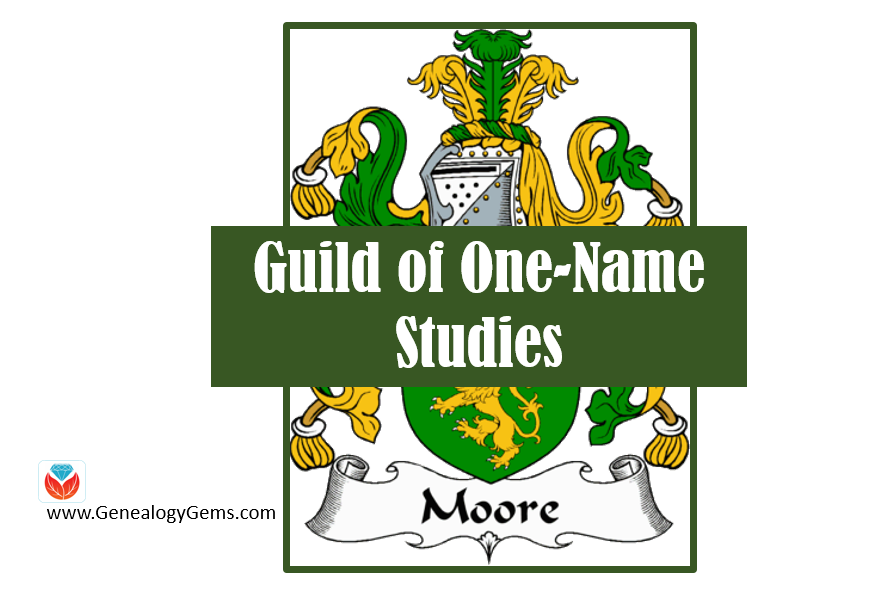
Surname Research for Free: Guild of One-Name Studies at FamilySearch.org
Sometimes you find yourself sorting through tons of people with the same last name to see which ones belong on your family tree. This surname research collection at FamilySearch can help you see what other researchers may have spent years compiling about thousands of family groups.

There’s a valuable free but much-overlooked online collection for surname research at FamilySearch.org. These are the family trees of nearly 3000 members of the Guild of One-Name Studies, who are studying nearly 9,000 different surnames. Their resources are strongest for the United Kingdom, where the Guild was founded, but you’ll find members all over the world.
What makes these family trees unique?
There are a couple of things that make these family trees unique:
1. These trees don’t just focus on a mostly-vertical line of ancestors for a single person. Members of the Guild collect everything they can about a particular surname and all its variants (hence the name of the organization). These efforts help organize and connect people with the same surname. Sometimes they help trace the origin of a surname. They can help people explore the variety of spellings and locations associated with different names.
2. These trees are often more fully researched and cited than your average online tree. The Guild takes pride in supporting its members in doing accurate, cited research; keeping their online databases updated; and responding to questions from others about their surname research.
Of course, always use caution when consulting others’ trees. Consider their content to be hints or suggestions until you prove them otherwise yourself. Scrutinize the sources they cite, many of which, say the Guild, aren’t available online elsewhere.
Explore the Guild Surname Research Collections
To explore this helpful free resource, follow the step-by-step instructions below:
1. Go to FamilySearch.org and click Search, then click Genealogies— not Records. (You may also click here to reach that landing page directly.)
2. Enter the surname of interest.
3. Click where it says All next to the Search button.
4. Select Guild of One-Name Studies.
5. Run the search. Click on search results to see:

A. The individual’s name, personal details and (scroll down) associated sources and citation details.
B. The individual’s place in a Guild family tree. Explore this family tree by clicking on someone’s name and seeing their information pop up to the left, where you can also click “View Tree” to see that person’s relatives.
C. Search for names within this tree.
D. This shows you what surname study the information comes from. In this case, you’re also given a link to a separate, associated website for that study.
6. Repeat to learn more about other surnames in your family.
More on Surname Research
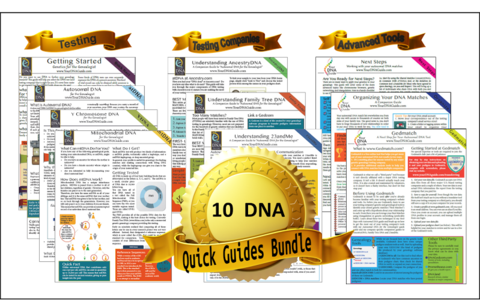 If you are interested in learning even more about surnames research, read Social Network Your yDNA with Surname Projects by our own Diahan Southard, and learn how surname study organizations are taking their research into the 21st century with DNA surname projects.
If you are interested in learning even more about surnames research, read Social Network Your yDNA with Surname Projects by our own Diahan Southard, and learn how surname study organizations are taking their research into the 21st century with DNA surname projects.
Also, learn more about utilizing DNA in your genealogy research with these 10 DNA quick guides from Your DNA Guide, Diahan Southard. They can be purchased in a bundle in either print or digital format.
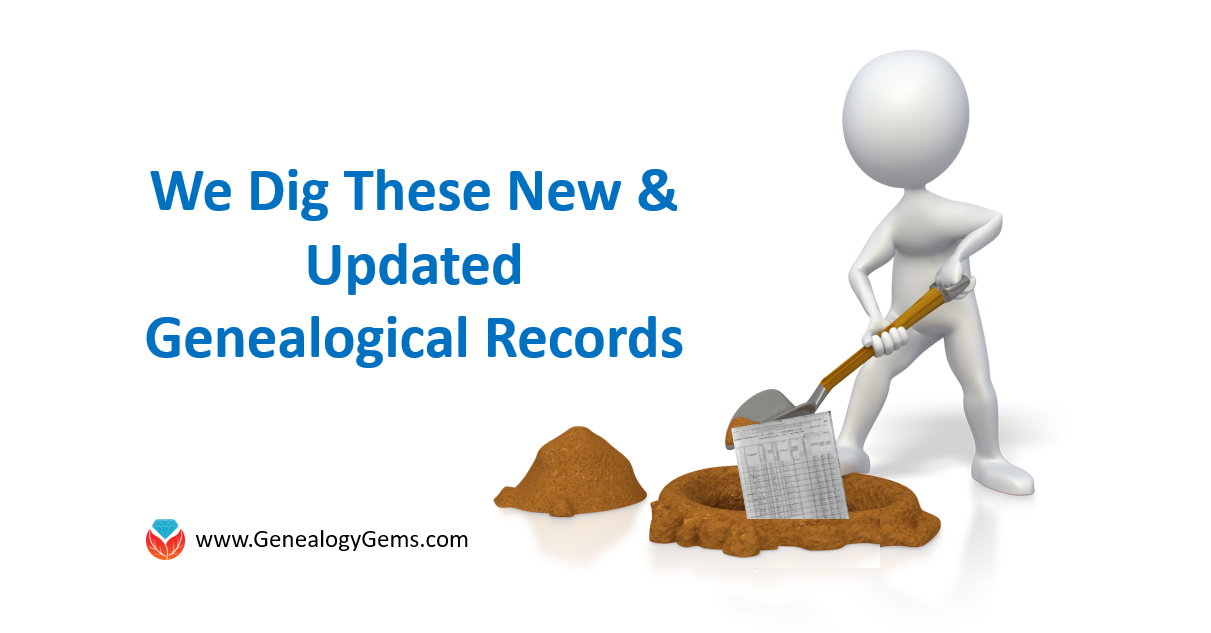
Top Tips for Finding Marriage Records in New and Updated Genealogical Collections
Finding marriage records doesn’t have to be difficult. Let us share with you some top tips for locating those hard-to-find marriage records using the FamilySearch marriage record collections this week. Other new and updated record collections include Leicestershire county family history records and Jersey Church of England parish records.
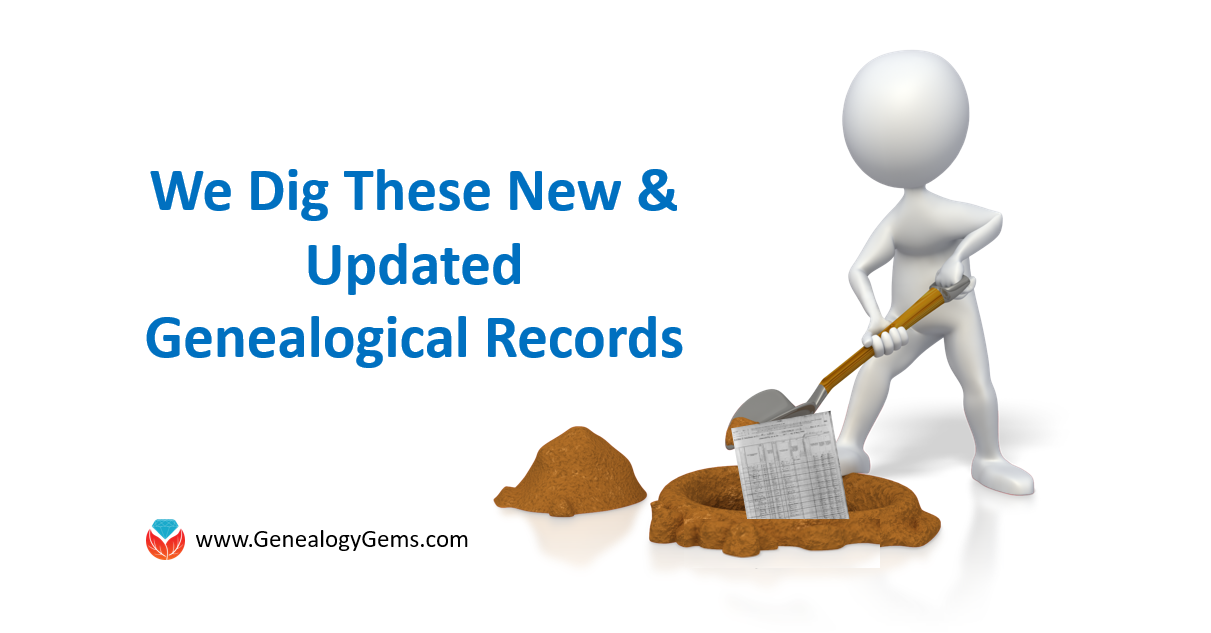
United States – Marriage Records
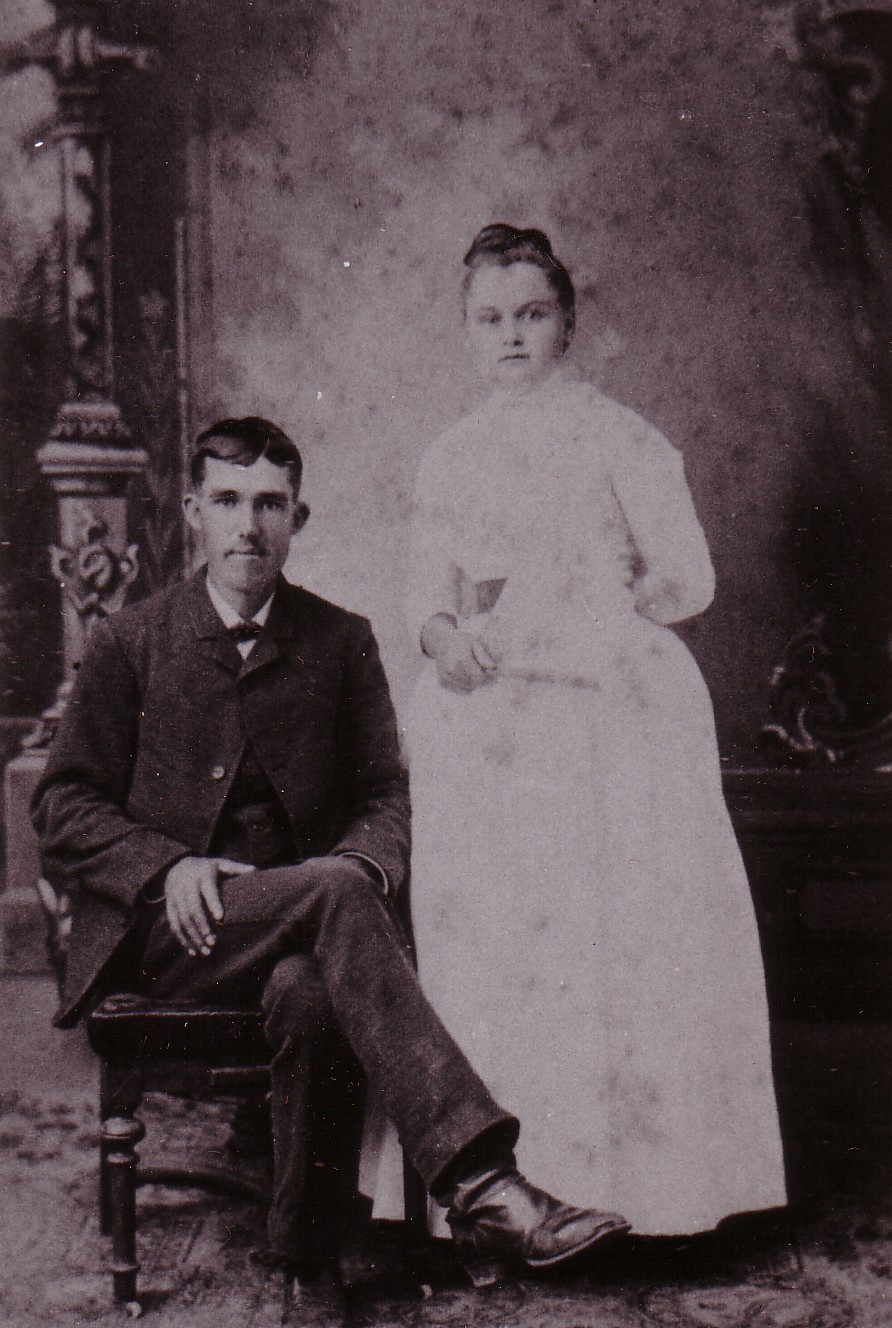
Harvey Hall and Edna Selby, 1886, Cameden County, Missouri. Photo courtesy of Sunny Morton.
The following states have had their marriage records updated at FamilySearch.org:
- Georgia, County Marriages, 1785-1950 – Index and images
- Rhode Island Town Marriages Index, 1639-1916 – Index only
- Oregon Marriage Records, 1849-1952 – Index only
- Hawaii, Marriages, 1826-1954 – Index only
- Alabama County Marriages, 1818-1936 – Index only
- Pennsylvania Civil Marriages, 1677-1950 – Index and images
Top Tips for Finding Marriage Records
We know you know are familiar with how to use these marriage records, but maybe you have had trouble finding the marriage records you need. Here are 3 top tips you could try when searching for marriage records on FamilySearch.org:
1. Search first by the groom’s full name and then the bride’s full name, separately. In this way, if one of them is indexed incorrectly, you may be able to find their marriage record after all.
2. Search only by last name’s and location (county and/or state).
3. Search the states around your targeted state. Sometimes, it was easier to marry in a different state due to marriage laws. Like in the case of Ohio, it was common to go to Kentucky to marry because there was no time requirement between the time of the marriage license and the wedding.
Here is a quick video tutorial showing you exactly how to use these tips!
England – Jersey Church of England Marriage Records
Ancestry.com has also added records to their collection titled Jersey, Church of England Marriages, 1754-1940. The pre-civil registrations typically include the name of the bride and groom, the date of the marriage, and the parish of origin or residence of both parties. Sometimes the occupation of the groom is included or the parentage of the couple. After 1842, the registers of the parishes are all written in a standard format and record further details including the age, status, place of residence, place of birth, occupation, name of father, and father’s occupation.
United Kingdom – Leicestershire & Rutland County – Family History Records
Findmypast has just launched the first phase of a new landmark collection for five centuries of historic records for Leicestershire and Rutland counties. Over 3.5 million records dating back to the reign of Henry VII are now available online.
This new archive spans the years 1490 to 1991 and includes beautifully scanned images of original handwritten documents. When complete, the collection will be the largest online repository of Leicestershire family history records in the world.
There is a variety of documents, including parish records of baptisms, marriages, burials, wills, and probate records dating back to 1490. Also, millions of electoral registers spanning the years 1710 to 1974.
These records cover the ancient counties of Leicestershire and Rutland. However, as some of the collections are drawn from different jurisdictions or were subject to boundary changes, some areas now beyond today’s boundaries, such as Little Bowden and Over and Netherseal, are also included.
Some famous individuals appear in the records like:
The parents of the Elephant Man, Joseph Merrick which can be found in an 1861 marriage register from the parish of Thurmaston.
More on Finding Marriage Records
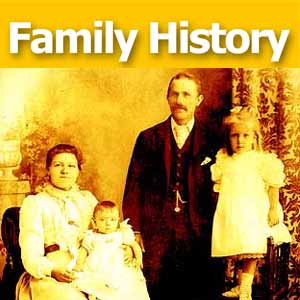 To learn even more about researching marriage records for family history, listen to Lisa’s free podcast episode titled Using Marriage Records in Family History. This episode is part of a series called Family History: Genealogy Made Easy. This specific podcast is all about marriage records and how to find and utilize them for your research.
To learn even more about researching marriage records for family history, listen to Lisa’s free podcast episode titled Using Marriage Records in Family History. This episode is part of a series called Family History: Genealogy Made Easy. This specific podcast is all about marriage records and how to find and utilize them for your research.
If you have not yet taken the opportunity to engage with Genealogy Gems through our free podcast, please join us. You can find the free episodes listed here.
For further in-depth tips and techniques, subscribe as a Premium Member and enjoy the Premium Podcasts just for members! There is always something more to learn in the world of genealogy and we want to share it with you.
Disclosure: This article contains affiliate links and Genealogy Gems will be compensated if you make a purchase after clicking on these links (at no additional cost to you). Thank you for supporting Genealogy Gems!
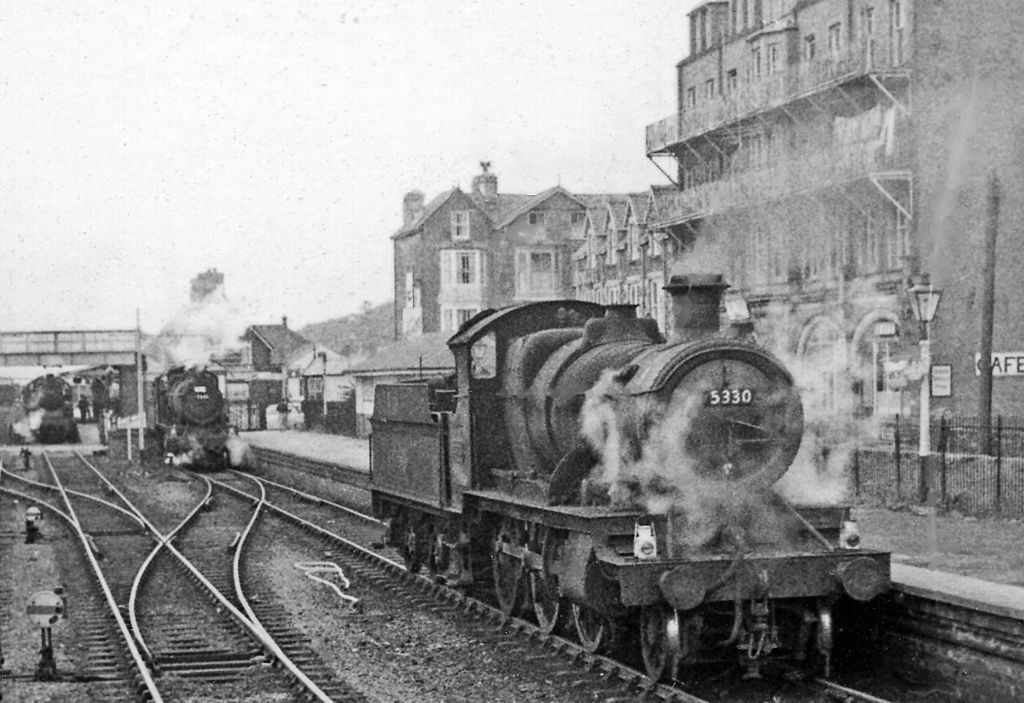
A Train Ticket and Popular Novel Solved this Adoption Mystery
Genealogy for adoptees can be a difficult journey. A train ticket from 1856 and one of our most popular Genealogy Gems Book Club titles helped one woman solve an adoption family mystery. Here’s her story.

Ben Brooksbank [CC BY-SA 2.0 (http://creativecommons.org/licenses/by-sa/2.0)], via Wikimedia Commons
Adoption Mystery: Solved
I recently read an article that I just had to share! Julia Park Tracey’s two-times great grandfather, William Lozier, was adopted. She wanted to trace his family history. Her only clue was the receipt for a train fare from New York’s Home for the Friendless to Oberlin, Ohio that William had. The ticket cost $7.50 and was dated 1856.
With a little bit of easy math, Julia realized that William would have been a three-year old at the time. Can you imagine? Julia was intrigued by the finding, but didn’t think much more about it until she read Orphan Train by Christina Baker Kline. This piqued her curiosity about Williams’s story and she started researching. What she found was an astonishing story of family struggling to stay together during the hardships of 19th century life.
Along her research journey, Julia learned that William’s mother was widowed in upstate New York in 1848. Consequently, the woman lost the family farm and needed to give up her two oldest boys to an orphanage. She managed to hold on to her oldest daughter and baby William while she worked as a seamstress. Sadly, she still couldn’t make ends meet and ended up placing her last two children in an orphanage as well.
Julia explains in the article: “Martha was undaunted; she worked and saved, and eventually wrote to ask for her children back. The orphanage did not respond. In those days, a child’s moral and spiritual welfare were tantamount, and a single mother was seen as not fit to parent. Nevertheless, she found her way to her daughter, and at least one of her middle sons, if not both. Martha lived the rest of her life with her married daughter and her grandchildren. She died between 1900 and 1910, [but] she never saw nor heard of what had happened to Will.”
With these new pieces of information, Julia was able to trace the line back through time and generations. She even learned a little more about her unexpected DNA results! I am sure it was very satisfying to finally piece together the story of the old train ticket and William’s family story. Even the smallest clues like the old train ticket can lead to long-forgotten stories that add to our family history tapestry. Genealogy is all about persistence, and much like a detective, the smallest piece of evidence can make all the difference!
More on Genealogy for Adoptees
 If you’ve been a Premium member for a while, you’ll recall Orphan Train by Christina Baker Kline. It was one of our first Genealogy Gems Book Club selections—and based on feedback from you, it’s been one of our most popular choices. If you haven’t listened to Premium episode 121 which includes our interview with Christina, I encourage you to go back and listen. In that conversation, you’ll learn about the history of the orphan train riders in the U.S. and Canada and how the author researched it.
If you’ve been a Premium member for a while, you’ll recall Orphan Train by Christina Baker Kline. It was one of our first Genealogy Gems Book Club selections—and based on feedback from you, it’s been one of our most popular choices. If you haven’t listened to Premium episode 121 which includes our interview with Christina, I encourage you to go back and listen. In that conversation, you’ll learn about the history of the orphan train riders in the U.S. and Canada and how the author researched it.
Learn more about the Orphan Train and it’s riders in this post: “Road Trip Anyone? An Orphan Train Museum.”
See what else we’ve read by clicking: Genealogy Gems Book Club




